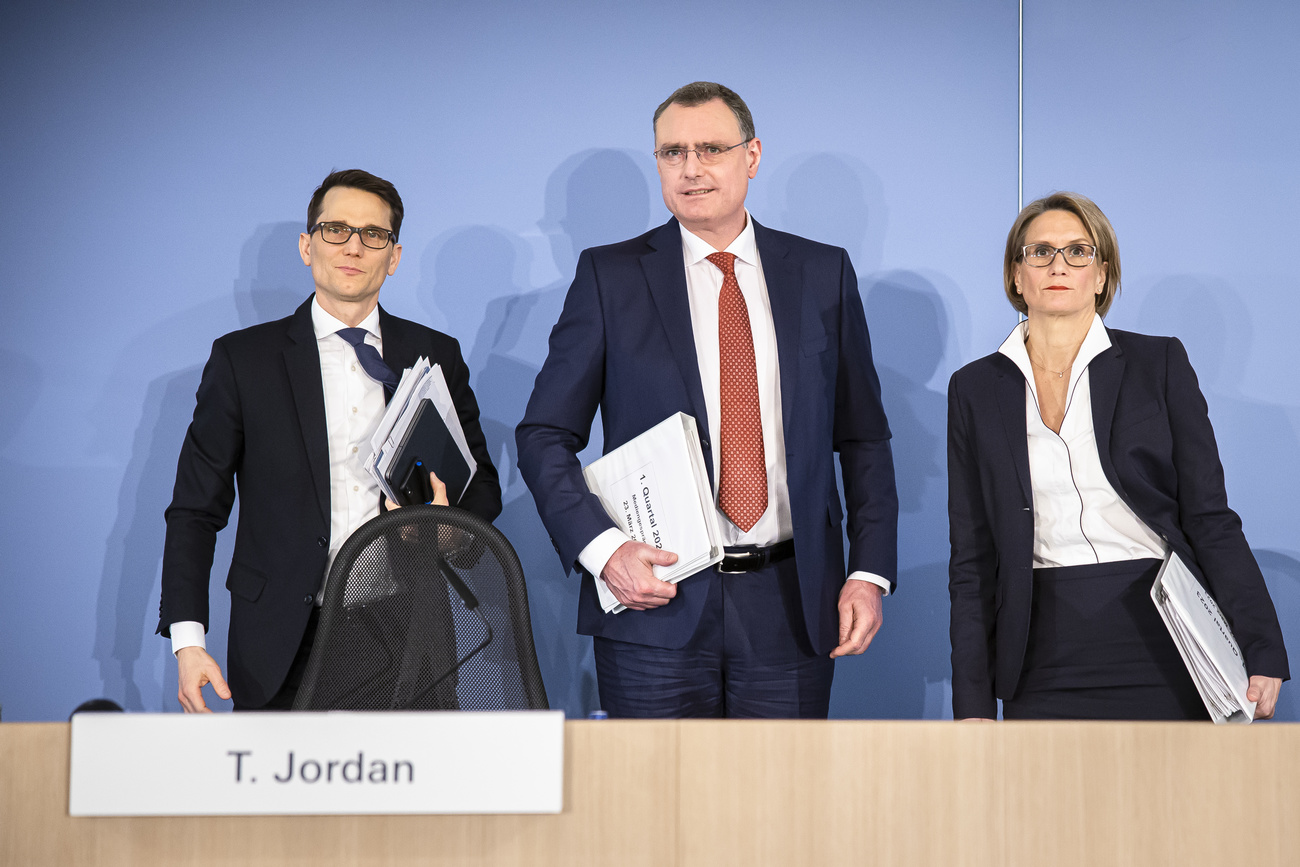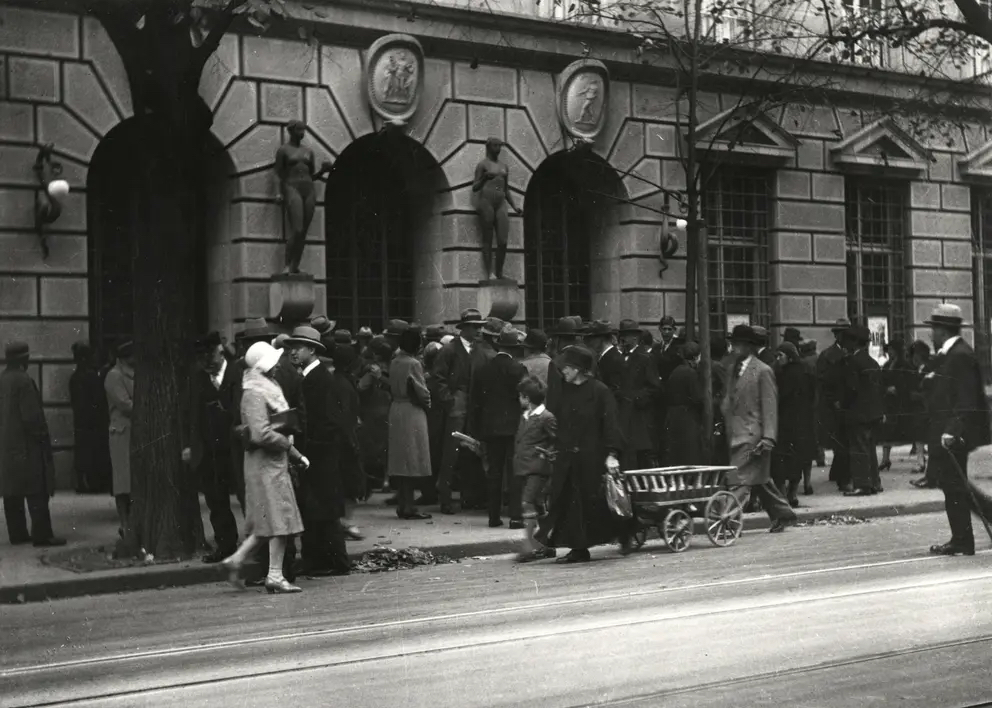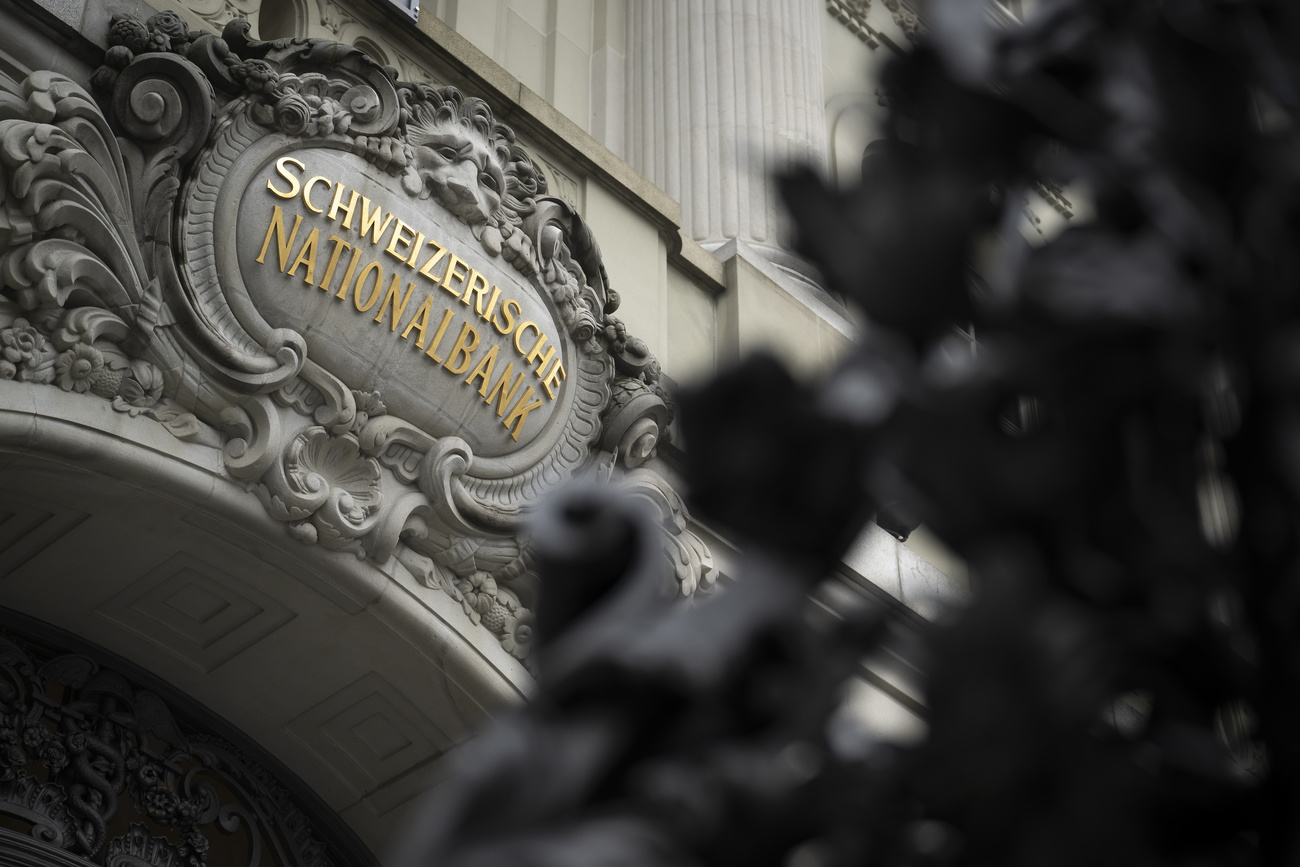
Who wields power at the Swiss central bank?

The Swiss National Bank (SNB) is one of the most powerful institutions in Swiss politics. But who makes the decisions and how does this differ from other major central banks?
The SNB has given Credit Suisse an unsecured loan of over CHF100 billion ($112 billion) and invests more than CHF900 billion of Swiss national wealth in the financial markets. It determines the purchasing power of the Swiss franc.
Who decides on SNB monetary policy?
The three-person SNB governing board takes monetary policy decisions. It consists of a President, a Vice-President and one other person. Thomas Jordan has headed the National Bank since 2012, making him the second longest-serving SNB President since it was founded in 1907. The Vice-President is Martin Schlegel. The third in the group is Andrea Maechler, who will step down at the end of June. Her replacement is currently being sought.
+ How central banks battle inflation
The SNB decision-making committee is very small by international standards: in the Bank of England nine people determine monetary policy, up to 12 at the US Federal Reserve and as many as 21 at the European Central Bank.
What does the SNB Bank Council do?
The 11 members of the Bank Council, comprising figures from business, science and politics, oversees the SNB. The Federal Council (Swiss government) puts forward six members and the SNB’s General Assembly elects the other five. The Bank Council decides on governors’ salaries, the organisation of the SNB and its provisions but has no say on monetary policy.
Who appoints the governing board and President?
The Swiss government formally elects the governing board and the President, but the Bank Council has a major influence by proposing candidates. The government does not have to back the Bank Council’s proposals but must justify any rejections. The Swiss parliament has no say in the matter.

More
The Swiss state as ‘an unwilling banker’
At other central banks, appointments are much more political. In the United States, the President nominates governors who are then elected by the Senate. In Britain, the King appoints the governor of the Bank of England at the request of the Prime Minister, often with input from the Chancellor of the Exchequer.
Can governors be sacked?
Members of the SNB governing board can be dismissed for serious misconduct or if they no longer meet the requirements for holding the position (e.g. a tarnished reputation). The government has the power to fire governors at the request of the SNB Bank Council.
The US President can sack Federal Reserve governors for similar reasons, but it’s unclear whether the President can demote the Chair to an ordinary governor.
Who owns the SNB?
Just over half of the SNB is owned by cantons, cantonal banks and other public institutions – the other half belongs to private investors. The Confederation does not hold shares in the central bank.

More
SNB rates not yet restrictive enough to tame prices, Jordan says
It is unusual for central banks to be part-owned by the private sector. The US Federal Reserve is an independent government institution without shares. The European Central Bank (ECB) belongs to the central banks of eurozone member states, such as the Banque de France or the Deutsche Bundesbank.
The Banque de France is 100% owned by the French state. The Bundesbank is an independent legal entity under German law whose capital belongs to the state.
What rights do SNB shareholders have?
SNB shareholders approve the central bank’s financial report, elect five of the 11 Bank Council members and are entitled to a share of the profits. They have no say in monetary policy decisions.
How independent is the SNB by international comparison?
The SNB is one of the most independent central banks in the world. Of the major central banks, only the ECB enjoys a similar level of political independence. Both the Bank of England and the Federal Reserve fare significantly worse in this regard.
How is independence measured?
The SNB is not allowed to accept or seek instructions from politicians and is financially free from politics as it finances its expenditure from its own income. The relatively long six-year term of office for governors also maintains independence.
How transparent is the SNB in international comparison?
The SNB is one of the most opaque central banks in the world, as shown by a study in 2022. The Swiss central bank only publishes the minutes of the monetary policy meetings 30 years after taking decisions. The Bank of England does this immediately after the meeting, the ECB after four weeks, albeit with a little less detail.
In addition, the SNB only holds four media conferences per year. The Federal Reserve and ECB provide information on their monetary policy eight times a year.

In compliance with the JTI standards
More: SWI swissinfo.ch certified by the Journalism Trust Initiative





























You can find an overview of ongoing debates with our journalists here . Please join us!
If you want to start a conversation about a topic raised in this article or want to report factual errors, email us at english@swissinfo.ch.